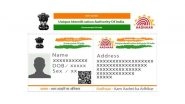New York, January 26: Wide swings in blood pressure readings among young adults are associated with a higher risk of cardiovascular disease by middle age, according to a new study.
The findings, published in the journal JAMA Cardiology, suggests that the current practice of averaging blood pressure readings to determine whether medications are necessary could be masking a potential early warning sign from the fluctuations themselves. Millennials Are at A High Risk of High Blood Pressure than Gen X: Here’s What Causes Hypertension in Young Generation.
"If a patient comes in with one reading in December and a significantly lower reading in January, the average might be within the range that would appear normal," said study lead author Yuichiro Yano from Duke University in the US.
"But is that difference associated with health outcomes in later life?" Yano said. "That's the question we sought to answer in this study, and it turns out the answer is yes." Yano added.
The researchers arrived at their conclusion after analysing 30 years of data from a large, diverse cohort of young people enrolled in the Coronary Artery Risk Development in Young Adults study between March 1985 and June 1986.
Of the 3,394 people studied, about 46 per cent were African American and 56 per cent were women. The patients had regular blood pressure checks, with patterns evaluated across five visits, including at two, five, seven and 10 years. At the 10-year mark, the average age of the patients was about 35.
The main reading of concern to Yano's research team was the systolic blood pressure level, the upper number in the equation that measures the pressure in the blood vessels when the heart pumps. A systolic blood pressure reading over 130 is considered hypertensive and has long been a major risk factor for cardiovascular disease.
The researchers were able to identify which young people had variations in systolic blood pressure by the age of 35 and then track them over the next 20 years and see whether there appeared to be a correlating increase in cardiovascular disease.
Over those years, study participants reported 181 deaths and 162 cardio-vascular events, which included fatal and nonfatal coronary heart disease, hospitalisation for heart failure, stroke, transient ischemic attack, or a stent procedure for blocked arteries. Long Office Work Hours Linked to Regular, Hidden High Blood Pressure: Study
The researchers found that each 3.6-mm spike in systolic blood pressure during young adulthood was associated with a 15-percent higher risk for heart disease events, independent of the averaged blood pressure levels during young adulthood and any single systolic blood pressure measurement in midlife.
(The above story first appeared on LatestLY on Jan 26, 2020 09:30 PM IST. For more news and updates on politics, world, sports, entertainment and lifestyle, log on to our website latestly.com).












 Quickly
Quickly


